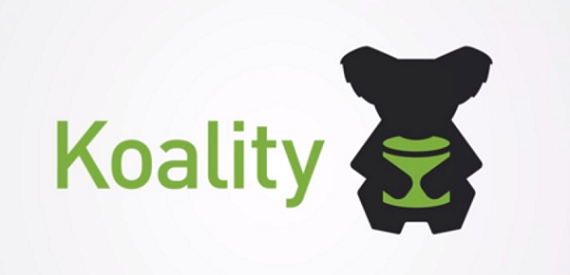
Software testing platform Koality (pronounced like “quality”) has raised a $1.8 million seed round, the company announced Thursday.
The round was led by FF Angel, a seed-stage fund operated by Founders Fund, assisted by Palantir Technologies chairman and Founders Fund partner Peter Thiel. Also participating was Webb Investment Network, Index Ventures, Felicis Ventures and UJ Ventures, along with Kris Duggan, Raymond Tonsing and Tien Tzuo as well as a number of angel investors from Facebook, Quora and Palantir.
The money will go toward hiring more people, Jonathan Chu, CEO and co-founder of Koality told me. That will include at least two more engineers and one sales person, though the company is not putting a cap on the number of new employees.
Koality is a technical product for software engineers that offers them a software testing platform that is meant to help increase developer productivity. The service debuted this month at TechCrunch Disrupt 2013.
“When engineers work together, they tend to step on each other’s feet. They get in each other’s way,” Chu said. “When they write a piece of code they have to make sure that their work is correct, so they need to run tests which mean that nobody else is able to do anything for hours.”
“Koality solves both those problems, making it so that they can no longer block each other.”
It does this by running parallel tests, as well as by recreating a production environment via the cloud.
For example, one of Koality’s first customers was One Kings Lane, who started using the service as to way to stop their engineers from blocking each other.
Before using Koality, they had 40 broken builds a month, said Chu. “What that means is that, essentially, an engineer has pushed bad code and broken something. That means that everyone got it, and no one can work until he fixes it.”
Having the engineers sync their code with Koality instead of with the central code depository solves this problem. Koality will test the code ahead of time, and so if it is bad then the engineer will not share it with everyone else on the team.
After using Koality, the number of broken builds by One Kings Lane engineers went to zero, resulting in a productivity gain for the company.
“Its like writing a book, and having the editor read it after its published. Instead, with Koality, the editor is reading it before it goes out.”
Another customer, which is a large, and well known, file sharing customer, which Chu chose not to name, uses Koality for the parallelization.
The company had a long build time, about an hour long test time, and the other engineers had to sit there waiting for result to come back before writing more code, Chu explained. Making the tests run in parallel made it it 50 times faster, and cut down on that wait time.
Koality’s cloud-based parallelization technology can increases test speeds by up to 64 times.
Competition
The biggest competitor for Koality is not another company, but internal tools developed by engineers.
” Some engineer that have had so much pain that they built their own internal tool, and even though it might cost the company money, its still hard to get them to give it up.”
Then there is dealing with the mentality of engineers, who want to be able to solve problems on their own, without having to outsource them to another service.
But that mentality is changing, said Chu.
“They want to do it themselves, but many engineers have so many things to do, and so many priorities, that they are grateful to take something off their queue,” he said. “It frees them to do the 10 other things that they have to do.”
Ultimately, Koality’s goal is to make it so that engineers never have to worrk about broken builds, tests or wait for tests to run again.
Chu, Jordan Potter and Brian Bland, all engineers at Palantir, founded the San Francisco-based company around a year ago. They approached Palantir Chairman Thiel with their product idea. He invested in the company through his fund, FF Angel and his support helped the Koality team secure additional start-up funding from its other seed.
“Peter really liked the team,” Chu told me. “As the founder of Palantir he knows what kind of people they hire. He also liked that we are trying to make impact on the world.”















